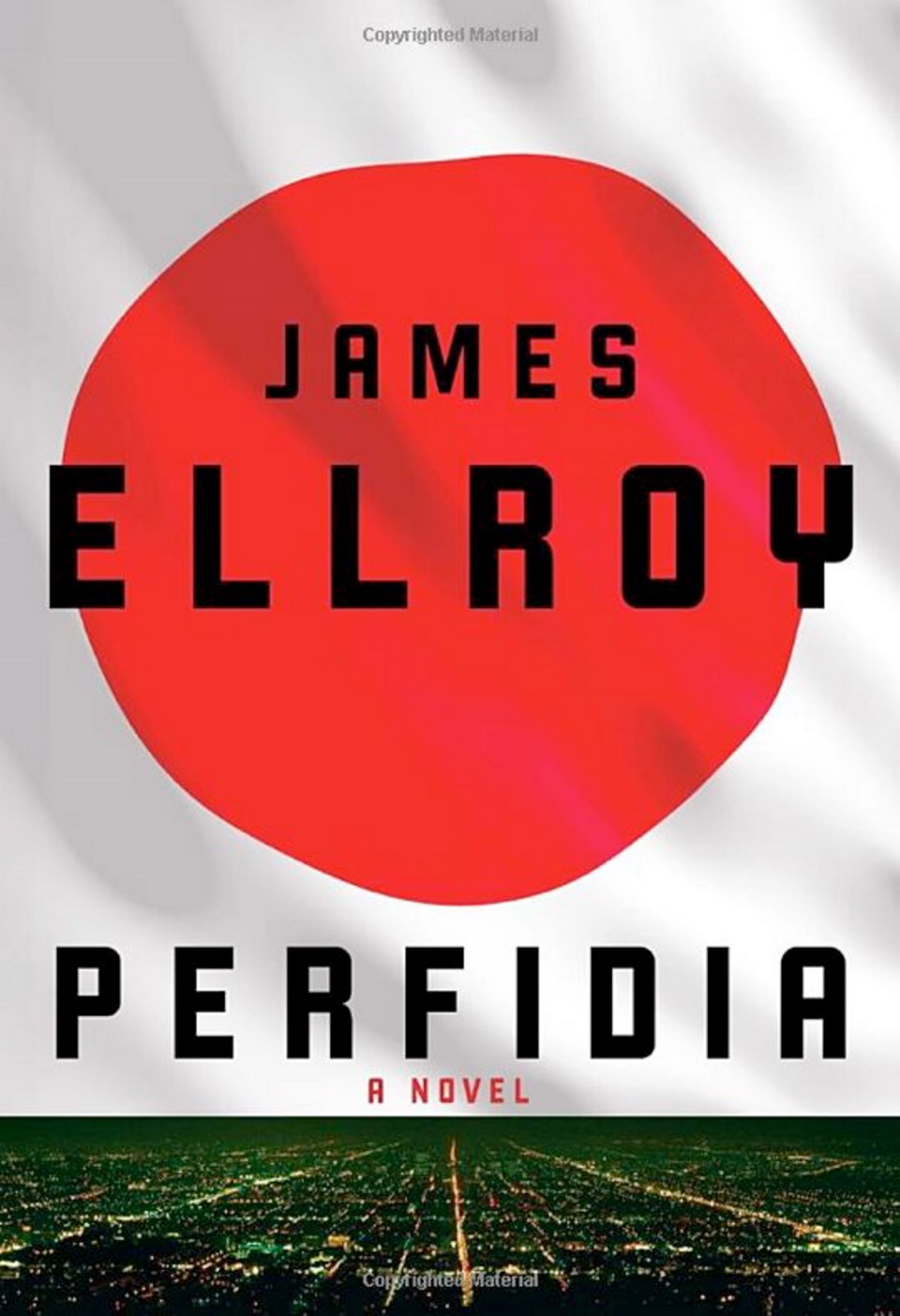James Ellroy’s Los Angeles will never be confused with Disneyland. Teeming with corrupt cops, slumming movie stars and grisly crime scenes, it’s a drugged-up, beat-down jungle of vice, rendered in staccato sentences and slang whose speakers don’t mix with polite company.
He keeps coming back to it, in book after book, series after series. First there was the L.A. Quartet, composed of The Black Dahlia, The Big Nowhere, L.A. Confidential and White Jazz. Now he’s back with a second L.A. Quartet, which starts with the twisting (and twisted) Second World War labyrinth of Perfidia.
Ellroy, 66, doesn’t read so much as he performs. A typical public greeting: “Good evening peepers, prowlers, pederasts ... punks and pimps.” He plays the author named James Ellroy and leads with a big persona: profane and provocative.
So how seriously should you take him when he claims he’s got a brand new bag?
“I’m an exuberant human being, and a rather aggressive one,” he says by phone. “I’m learning to modulate my affects and modify them to fit my new, more mature persona in what is a different kind of book for me.”
It is, and it isn’t. Perfidia revolves around the bombing of Pearl Harbor and the ensuing chaos in the Los Angeles area. It also deals with the internment of Japanese-Americans, and the plight of one Hideo Ashida, a brilliant criminologist who, as Ellroy says, is “in the deepest of [expletive].”
“He’s a closeted homosexual in 1941. He’s Japanese-American in 1941. He’s a young man of conflicting loyalties and conflicting ideologies, a feudal Japanese samurai tradition and Protestant tradition. And he’s a genius.”
The book also contains long first-person sections narrated by a female character, uncommon in the hypermacho Ellroy universe. “I think she’s my greatest fictional creation.”
Lest you think he’s going soft, Perfidia also boasts all manner of depravity, much of it perpetrated by Dudley Smith.
L.A. Confidential fans will remember “Dudster,” played with such charming menace by James Cromwell in Hanson’s film. Here he’s a younger, more savage beast, quick to have a group of Chinese gang members hacked up with an ax and join the fun with his gun, all in the name of a good frame-up. This younger Dudley has his best thoughts after a few hits of opium, offset by a few swigs of sturdy Dexedrine tea.
Like most Ellroy novels, Perfidia is densely plotted and fast on its feet. Its 695 pages include 43 characters, many of them familiar from the first quartet. They include Dudley; Kay Lake, the female lead of The Black Dahlia, Sgt. Buzz Meeks, from The Big Nowhere and L.A. Confidential and the tabloid reporter Sid Hudgens, memorably played by Danny DeVito in L.A. Confidential.
Think of it as the first instalment of a new prequel series, unfolding in the years before the first L.A. Quartet takes flight. “It’s about taking previously established characters and supplying dramatic revelation that in no way compromises the actions of the characters in their later years. It has to be seamless.”
The phrase “shadow history” comes to mind when describing Ellroy’s work. His Underworld USA trilogy deals with Dallas and the Kennedy assassination. His L.A. books feature real-life characters — Bette Davis, former LAPD chief William (Whiskey Bill) Parker, gangster Mickey Cohen — operating in a seedy fictional world.
But Ellroy says the idea that he mimics history detracts from the accomplishments of his imagination. Fuelled by a pair of still-unsolved L.A. murders — his own mother in 1958 and Elizabeth Short (a.k.a. the Black Dahlia) in 1947 — and a subsequent fascination with and reverence for the LAPD, he has created his own sinister and wildly entertaining universe. Historical figures drop in from time to time, but only to do Ellroy’s bidding.
“I’ve had to create my own shadow history. No one else’s shadow history interested me. I never tell people what’s real or what’s not. When I hire researchers, I tell them they don’t have to go out and get me secret documents. Just give me history as it is. I trust myself to extrapolate fictionally.”



